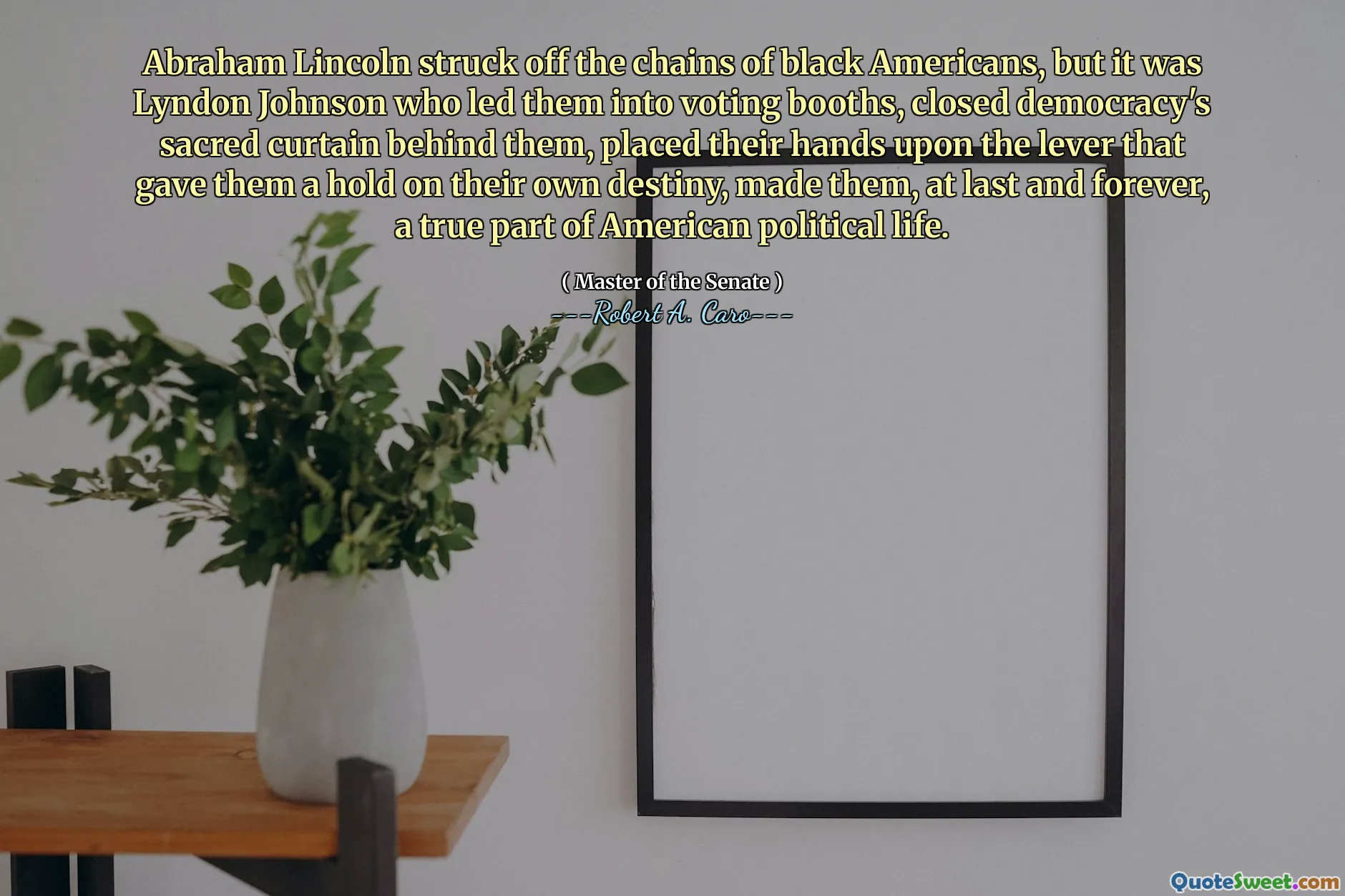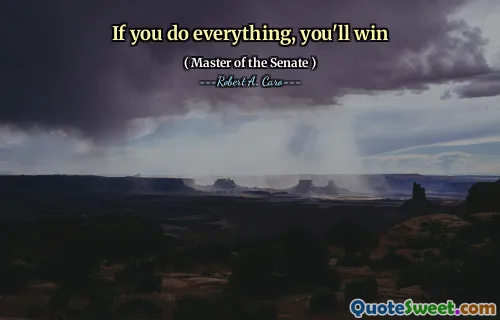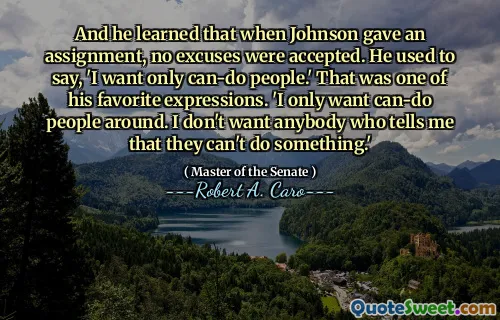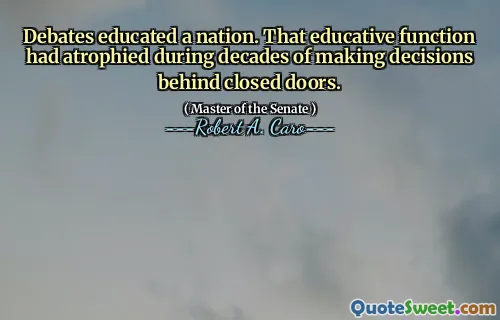
Abraham Lincoln struck off the chains of black Americans, but it was Lyndon Johnson who led them into voting booths, closed democracy's sacred curtain behind them, placed their hands upon the lever that gave them a hold on their own destiny, made them, at last and forever, a true part of American political life.
This quote underscores the complex evolution of civil rights and racial equality in America through the lens of two pivotal presidents: Abraham Lincoln and Lyndon B. Johnson. Lincoln's efforts during the Civil War era were instrumental in abolishing slavery and dismantling the existing shackles of racial oppression. His legacy is often associated with the symbolic and practical emancipation of Black Americans, providing the legal and moral foundation for future independence. However, the true transformative work was deemed by many to be carried out by Johnson later in the 1960s. Johnson’s leadership in passing landmark legislation such as the Voting Rights Act of 1965 was critical in translating symbolic freedom into tangible political power. The imagery used in the quote highlights a progression from emancipation to enfranchisement, emphasizing that initial legal liberation, as achieved by Lincoln, was only part of the journey. Johnson's role in ensuring Black Americans could exercise their voting rights represents an essential step in integrating them into the fabric of American political life. This raises reflections on the nature of progress—highlighting that emancipation alone does not guarantee equity or participation. Equal rights must be actively upheld through policies and sustained commitment. It also prompts a contemplation on the cumulative nature of leadership—how different leaders contribute to social change over time, each building on the sacrifices and successes of their predecessors. The process of embedding marginalized groups into the democratic process illustrates the long, often arduous path toward true equality, reminding us that legal victories must be accompanied by active efforts to ensure those rights are exercised and protected. Ultimately, the quote captures a nuanced history of racial justice in America, acknowledging that liberation is a multifaceted, ongoing journey that involves not only breaking chains but also opening doors.









